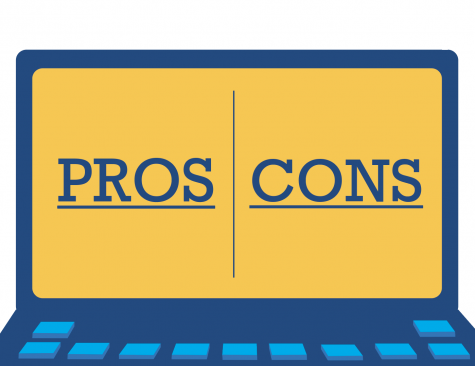What to Do if You Experience Sexual Harassment
Last weekend, it was revealed that a University professor was included in a report alleging sexual misconduct with students at the professor’s previous employer, Choate Rosemary Hall.
In light of this, the Charger Bulletin spoke with University officials about how sexual misconduct is handled and what students can do if this happens to themAccording to Ashley Dunn, assistant director of student life programs & Title IX/VAWA compliance, the first thing students should do if they experience sexual harassment is document everything that happens, and report the harassment to the Title IX Coordinator, Caroline Koziatek, if it is a University employee or student.
“Particularly, for students experiencing sexual harassment it can be important to document the types of behaviors that are unwelcome, creating discomfort, or hostile,” Dunn said.
Students can reference the Referral and Resources Options in the student handbook, on myCharger, and linked here.
Dunn outlined the various resources available for students to have private or confidential conversations about sensitive subjects, including Counseling & Psychological Services, Health Services, College Advocate (Melissa Jennings of the Milford Rape Crisis Center), Dean of Students Office, Campus Police, Title IX Coordinator, and Human Resources. These resources remain available whether or not a student wishes to formally submit a report on the incident.
“We want to make sure that students are able to utilize a resource that works best for their needs, which may mean assistance with class or living accommodations in the Dean of Students Office or concerns about safety with the Campus Police,” she said.
Students and faculty can report on incidents that happen on campus using the Report It! page online. Reports include bias motivated incidents, crimes, and behavioral concerns. The page allows people to remain anonymous and share whatever information he or she is comfortable with.
“I think it is important for all community members to understand that when anonymous reports lack full details and/or are absent identifying information about a harasser or person of concern it can limit the University’s ability to follow-up on the report. Therefore, we would encourage anyone choosing to file an anonymous report to provide as many details as possible to aid in a University investigation or inquiry,” Dunn said.
Dunn mentioned the likeliness of an incident perceived as “minor” to go unreported more often, because they may not find it important or realize that it is sexual misconduct. She said that reporting these incidents allows the University to respond with education on the matter and the discouragement of those types of behavior to the whole community.
“We encourage all community members to report any forms of sexual harassment. If we can choose to take all situations of sexual misconduct, and harassment, seriously then we will continue to move towards a safer campus environment for all,” Dunn said.
Many of the procedures outlined by Dunn as well as additional information is included in the University’s Title IX and Sexual Misconduct Policy, located in the student handbook.
“I would be remiss if I did not point out that it is easy for an administrator, such as myself, to encourage reporting when I am not experiencing the harassment firsthand. We should all acknowledge the immense difficulty presented to individuals put in any situation that would result in their reporting sexual misconduct to the University,” Dunn said.
Students are encouraged to reach out to the University of New Haven Police Department, who can help if a person is concerned for their safety, with their own means and connect to other local law enforcement resources.

Glenn Rohrbacker is a junior at the University of New Haven studying communications with a concentration in journalism and minors in Political Science...










